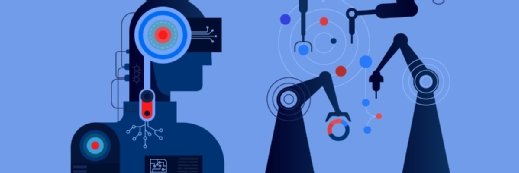
Getty Images
Cedars-Sinai Launches Artificial Intelligence Division
The Department of Medicine at Cedars-Sinai intends to use artificial intelligence to solve complex medical problems and improve the quality of clinical care.
Los Angeles-based Cedars-Sinai has created a new division called Artificial Intelligence in Medicine, with the intention of enhancing clinical care.
Led by Sumeet Chugh, MD, an associate director of the Smidt Heart Institute and a cardiac arrest specialist, AIM intends to use artificial intelligence techniques to improve population health across several conditions, including heart attacks.
“Through the use of applied artificial intelligence, we can solve existing gaps in mechanisms, diagnostics and therapeutics of major human disease conditions which afflict large populations,” said Paul Noble, MD, professor of medicine, chair of the Department of Medicine, and creator of the new division, in the press release.
Initially, the new division will focus on tools to improve cardiac imaging, sudden cardiac arrest outcomes, COVID-19 care, and clinical genetics.
AIM has already published studies related to its efforts. A study published in the Journal of Nuclear Medicine describes its use of AI to decipher heart attack risk within patients and how AIM was helpful. The division was able to use algorithms to identify which patients with coronary artery disease had the highest chance of having a heart attack.
A study in Jama Cardiology also described research on two heart conditions known as hypertrophic cardiomyopathy and cardiac amyloidosis and how a tool developed by AIM helped cardiologists pinpoint these conditions.
“These two heart conditions are challenging for even expert cardiologists to accurately identify, and so patients often go on for years to decades before receiving a correct diagnosis,” said David Ouyang, MD, a cardiologist in the Smidt Heart Institute and member of AIM, in the press release. “Our AI algorithm can pinpoint disease patterns that can’t be seen by the naked eye, and then use these patterns to predict the right diagnosis.”
Along with AIM, researchers from Cedars-Sinai plan to create several other programs that focus on the effectiveness of AI.
Increasingly, healthcare stakeholders are turning to AI for various use cases, including expanding access to preventive care.
For example, Medtronic and the American Society for Gastrointestinal Endoscopy recently teamed up to increase the accessibility and use of AI for colon cancer screenings.
AI is also being recognized as a tool that can help enhance care for mental health conditions.
In December 2021, the University of Pennsylvania received a large grant from the National Institute on Aging to support their research on Alzheimer’s disease. Researchers from the university intend to study and implement remote patient monitoring using AI to care for people with this condition.





